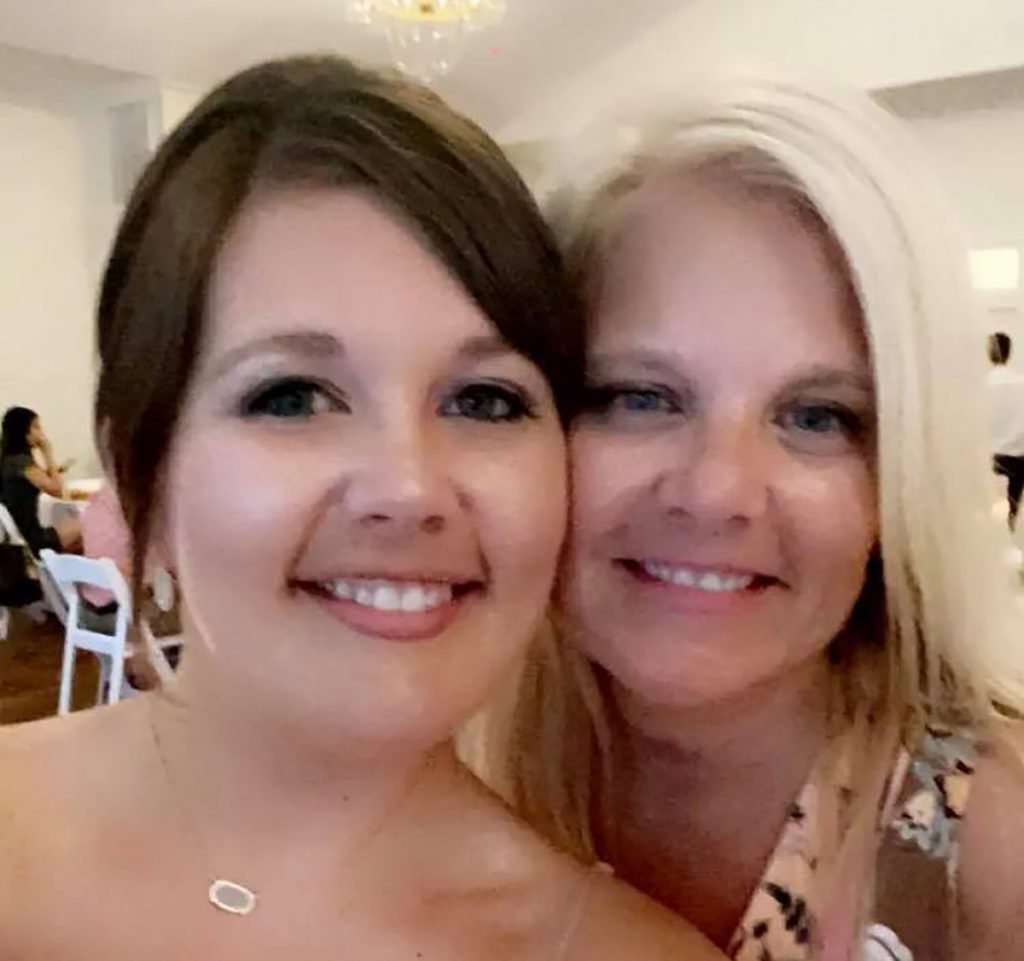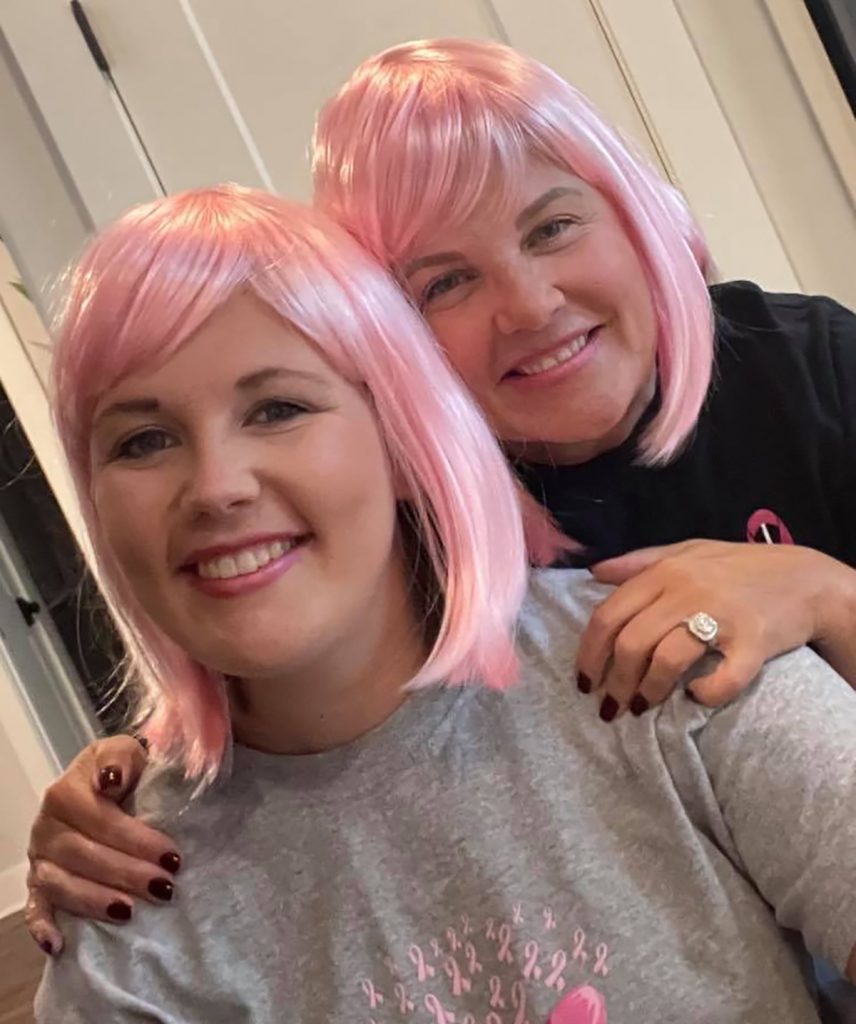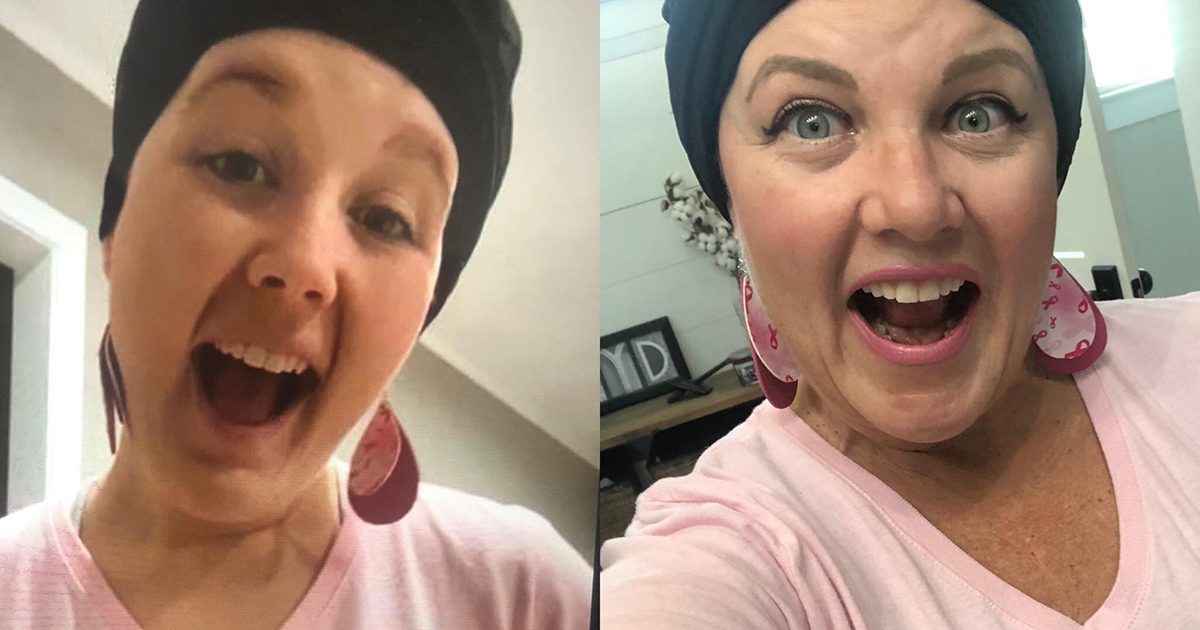The Importance of Genetic Testing
- Allison Robertson never sleeps with her bra on, but one night about two years ago, thankfully she did. That moment of forgetfulness is most likely the small act that saved her life, and her mother's life as well; they were both diagnosed with stage 1a invasive ductal carcinoma.
- Robertson didn't think she would be diagnosed with cancer; no one in her family had ever been diagnosed with cancer before, so why would she? That couldn't have been further from the truth; both she and her mother, Karen Boyd, have the PALB2 gene mutation.
- Between 5% and 10% of breast cancer cases are thought to be hereditary, meaning that those cases result directly from gene mutations passed down from a parent; get tested for genetic cancer markers. It could save a life.
Robertson, 27 at the time, had just gone in for her annual OB-GYN appointment. Since she was still relatively young, the doctor did a quick breast check and said everything was fine. Then, a few days later, she fell asleep with her bra on.
Read More
Robertson, who is now 29, was diagnosed with stage 1a invasive ductal carcinoma in September 2019, just days before her 28th birthday. The tumor, according to her mother, Karen Boyd, was directly behind Robertson's nipple, so the doctor wouldn't have been able to feel it during a routine breast check.
Robertson, who lives down the street from her mother in Bartlett, Tenn., completed chemotherapy treatments in 2020, but her family's struggle wasn't over yet; unbeknownst to her at the time, she would have to watch her mom go through the same thing almost two years later.
Dr. Elizabeth Comen explains stage 1 breast cancer.
Her Mother's Subsequent Breast Cancer Diagnosis
Robert's diagnosis led her family on a search for breast cancer genetic markers; she underwent genetic testing and found out she had what's called the PALB2 gene mutation. The PALB2 gene is called the partner and localizer of the BRCA2 gene; it provides instructions to make a protein that works with the BRCA2 gene protein one of the most common gene mutations to repair damaged DNA and stop tumor growth. Her mother was also tested for the gene mutation; she tested positive as well. It turns out Boyd passed the gene onto both of her children.
Boyd never had any problems; she says she went for her mammogram every year.
"I was vigilant about that," she tells SurvivorNet.
But once she found out she was positive for the PALB2 gene mutation, making her more susceptible to breast cancer, she underwent regular breast checks every three months. Boyd says her doctor saw something "weird" during an MRI scan in March. Her doctors followed up with a mammogram, which came back clean. Her MRI scans were pulled up again, which led to a biopsy.
"Of course it (the biopsy) came back cancerous," Boyd says. "Had I been a normal person going to get a mammogram, I wouldn't know I have breast cancer right now."

Boyd, now 50, was diagnosed with the same cancer as her daughter stage 1a invasive ductal carcinoma in April. She started treatment in June and finished chemotherapy last week (her last session was Sept. 7), but she still has to go through radiation, which she starts in October.
"It really is a crazy story and it really is almost unbelievable when you sit here and talk about it," Boyd says with a laugh. "It sucks. I don't wanna sugar coat it … so we just try to stay positive."
While Robertson and Boyd aren't out of the woods completely, their story is an uplifting one; their cancer was caught in an early stage, and they learned of genetic markers that left them susceptible to developing breast cancer. Because of this, Boyd wanted to use their story for good.
That's why she created the Pink Ribbons Group on Facebook; it's a place where she chronicles her own breast cancer battle. Boyd one in about 281,000 women to be diagnosed with an invasive breast cancer in the United States this year, according to the American Cancer Society hopes to use the platform to help others who might be going through a similar struggle.
Genetic Testing For Breast Cancer
The Importance of Genetic Testing for Breast Cancer
Robertson didn't think she would be diagnosed with cancer; no one in her family had ever been diagnosed with cancer before, so why would she? That couldn't have been further from the truth.
Once she was diagnosed and underwent genetic testing, she found out she had the PALB2 gene mutation. Her mother then found out she had the same mutation. They did some research into their family history and discovered that Boyd's great grandmother (Robertson's great great grandmother) was a twin; both she and her sister died in their 20s of breast cancer. Since then, Boyd says, their family has been predominantly male, so the information was never uncovered. Robertson was the first person in their family to be diagnosed with breast cancer since the twins.
Risk Factors for Breast Cancer
Between 5% and 10% of breast cancer cases are thought to be hereditary, according to the American Cancer Society, meaning that those cases result directly from gene mutations passed down from a parent. The most common gene mutations are the BRCA1 (BReast CAncer gene 1) and BRCA2 (BReast CAncer gene 2) mutations; these genes help cells repair their DNA damage. If a parent carries a BRCA gene mutation, there's a 50-50 chance you could be carrying it too.
About 10% of patients who undergo genetic testing will test positive for the BRCA1 or BRCA2 gene, Dr. Julie Rani Nangia, an assistant professor at Baylor College of Medicine, tells SurvivorNet. But an additional 5% to 6% will test positive for other genes.
There are many other gene mutations that can lead to inherited breast cancers, including the PALB2 gene (this is the gene Robertson and Boyd tested positive for), ATM, TP53, CHEK2, PTEN, CDH1 and STK11. These gene mutations are much less common and most of them don't increase the risk of breast cancer as much as the BRCA mutations.
But mutations in the PALB2 gene can lead to a higher risk of breast cancer. A New England Journal of Medicine report from August 2014 reported the discovery of the PALB2 gene, and found that the gene might be nearly as important as the BRCA genes when it comes to a woman’s risk of developing breast cancer.
Boyd was the only one of three children to test positive for the PALB2 gene mutation, and she passed it down to both of her children. Now that they know of the gene's existence, Boyd's grandchildren and Robertson's children will get tested for the gene once they turn 18 years old. This finding could save future lives in their family.
Moral of the story is to get tested for genetic cancer markers. It could save a life.
Learn more about SurvivorNet's rigorous medical review process.


